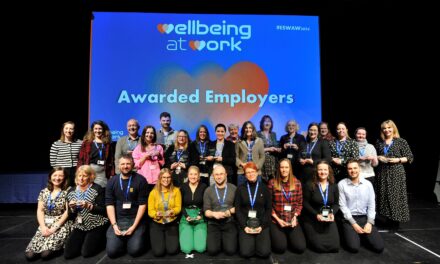Loneliness is most talked about as something that affects older people. However, this is far from the case, as marketing graduate Bianca Serra recently discussed with us when she joined us for a work experience placement…
Bianca shares her story of navigating new-found adulthood, professional life, and the pressure of social media:
“As a recent graduate in my mid-20s, the transition into full-time adulthood can sometimes usher in a sense of overwhelming loneliness. It’s ironic how this exciting phase of life can also leave me feeling isolated.
Imposter syndrome constantly whispers doubts, questioning my abilities and deservingness of opportunities. I feel as if I am constantly masquerading, I fear being exposed as an imposter while pretending to be confident and capable. Society can be confusing and harsh. People put on facades and conform to others’ expectations, and it all feels like marching in a parade of pretenders.
The ‘fake it till you make it’ mantra seems to continuously switch between causing me anxiety and feeling motivational.
Reality online seems rare, amplified is a showcase of achievement without acknowledging moments of failure and struggle, discouraging genuine connections. There is an unspoken pressure to share only the highlights. This sometimes fosters self-imposed solitude, making it difficult to forge genuine connections. The fear of vulnerability makes it hard to let down our guard and share with others, so instead, choosing to isolate away from others whilst it feels like a safeguarding measure, only increases feelings of loneliness.
To my younger self, I offer words of comfort and encouragement. You are not alone; you possess immense inner strength. Worth isn’t defined by external validation or society’s idea of what our timeline should or shouldn’t be. Be the kindness to others that you needed yourself. Remember to enjoy and embrace moments of self-discovery, they are vital.
Ironically, feeling alone can prevent us from embracing the present. Fear of rejection and disappointment keeps me guarded and anxious, affecting connections and experiences that alleviate loneliness. Yet, within this paradox lies resilience and hope. Loneliness is temporary, not permanent. I affirm my capability to reach out, seek support, and find comfort in shared experiences.
I consciously confront my loneliness, nurture compassion for myself, and acknowledge my vulnerability is a strength, not a weakness. Living in the present is essential because connection matters and we need to feel a sense of belonging.”
How can I support Loneliness Awareness Week?
It’s all about spreading the word.
As individuals, we all play a crucial role in raising awareness about loneliness, and by taking proactive steps, you can nurture a deeper level of understanding and encourage support in yourself and those around you when it comes to loneliness.
Amplify important messages
Many incredible organisations are actively working to reduce loneliness. Both the Marmalade Trust and The Loneliness campaign, as part of Better Health – Every Mind Matters are looking to reduce the stigma around loneliness and encourage people to talk more openly about it. Every year, the Department for Culture, Media, and Sport (DCMS) supports the week to raise awareness and build a national conversation about loneliness.
Share your story
Speak openly about personal experiences with loneliness, as Bianca has done, to reduce the stigma and encourage others to share their experiences. Sharing our journey can help others relate and feel understood so they are not alone in their feelings. Whether on social media or in person, your story can make a big difference.
Start a conversation
Initiate conversations with friends, family, and colleagues about loneliness. Share information and statistics to encourage open dialogue about the impact of it on our mental health and well-being. Be a compassionate listener and offer support to those who may be struggling, because you won’t believe the positive impact it will have.
Offer support
Be there for others. People experiencing loneliness may find it difficult to ask for help, and simply being there for them and offering your support, empathy, and understanding could make all the difference. Reach out to friends, family members, or acquaintances who you haven’t spoken to in a while, who may be isolated and going through challenging times. Connecting with people and offering them even a small gesture of kindness can leave a life-changing impression.
Accept help
The Mix offers free confidential help for under-25s to get support online and via a helpline:
- call 0808 808 4494
- text “THEMIX” to 85258
- visit The Mix website for a free online chat service
LGBT Foundation: confidential and judgment-free support for LGBTQ+ people and their loved ones:
- call 0345 3 30 30 30
- email helpline@lgbt.foundation
- visit the LGBT Foundation website
Silverline: a free 24-hour confidential telephone helpline offering information, friendship, and advice to people over 55:
- call 0800 4 70 80 90
Earlier this week we published another article on loneliness called ‘Are you feeling lonely?’




